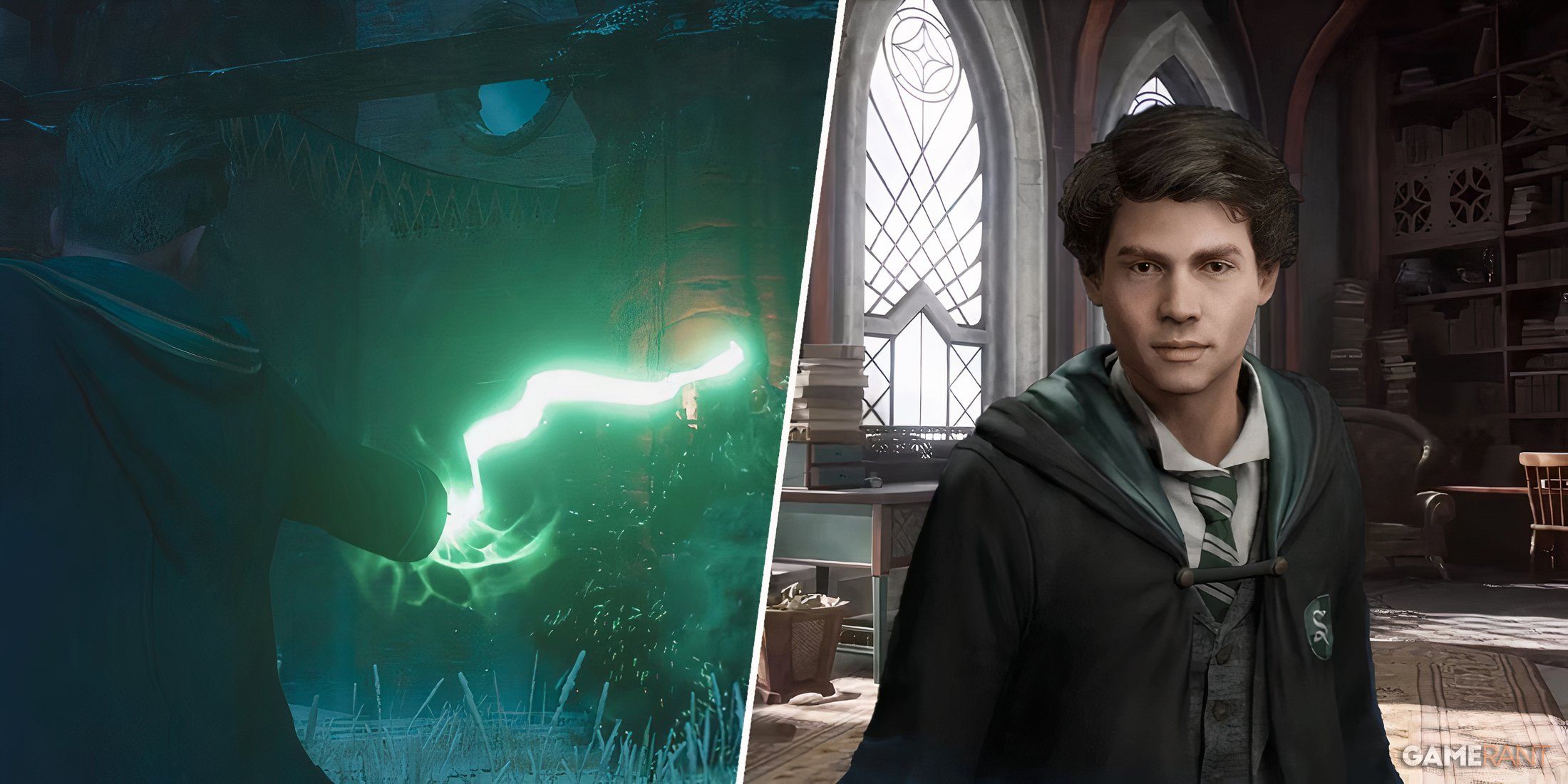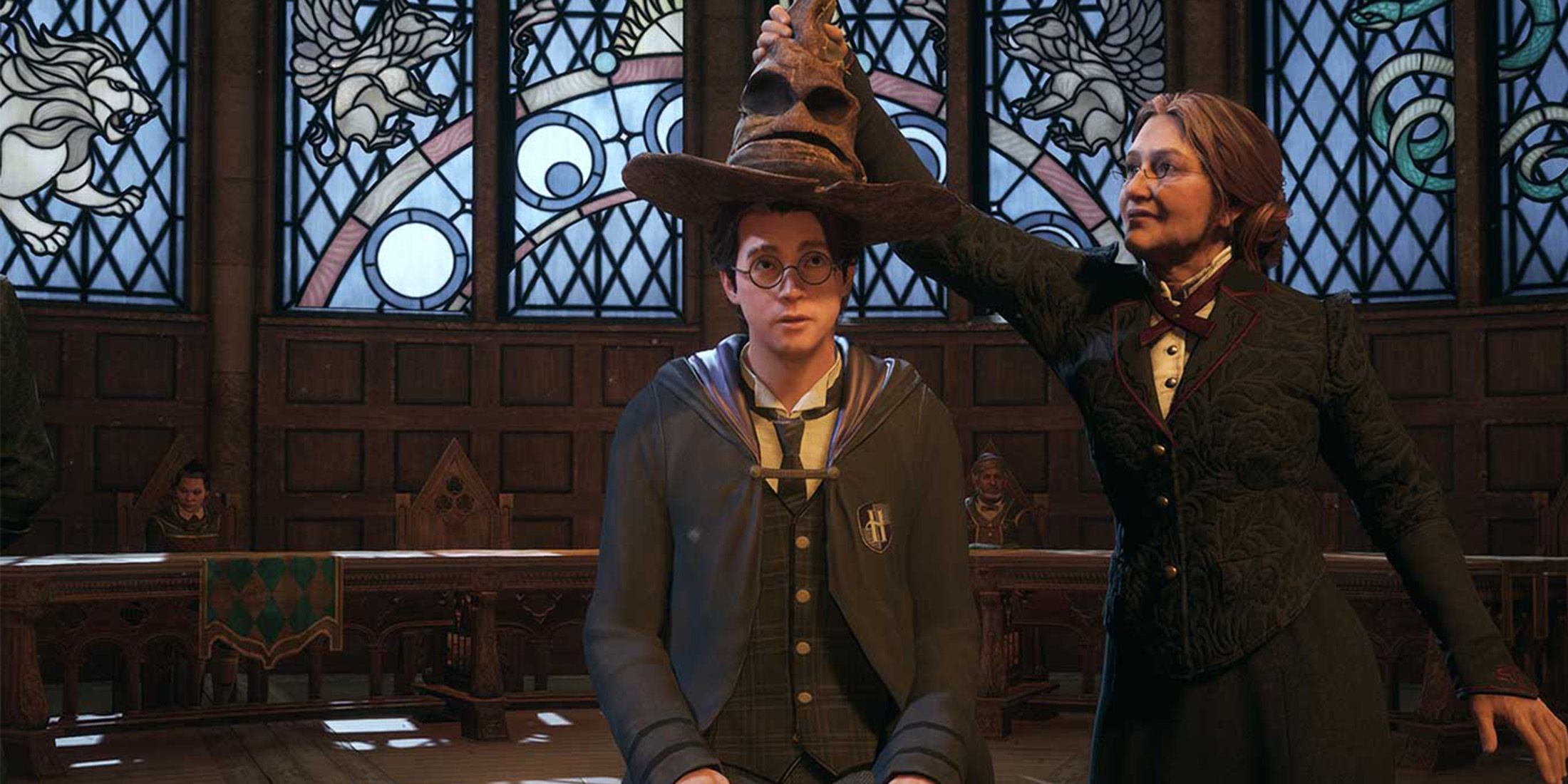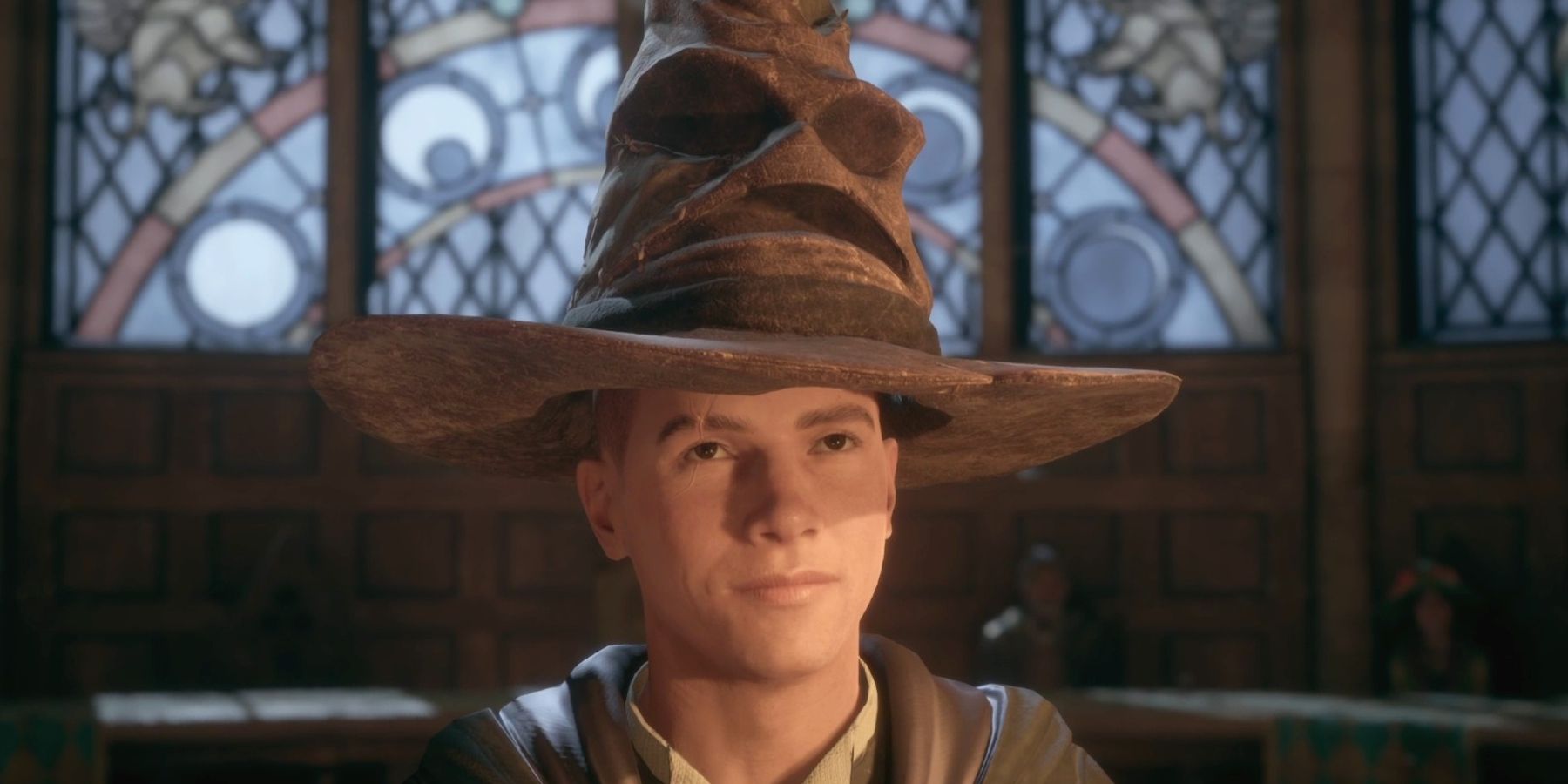Highlights
- Hogwarts Legacy's freedom of choice can be a double-edged sword, as it sacrifices depth and immersion for the sake of player freedom, as seen with the inclusion of consequence-free Unforgivable Curses.
- House selection in the game lacks meaningful impact, as the main story and side quests remain the same regardless of the chosen house, making the choice feel trivial and meaningless.
- A predetermined Hogwarts house in the sequel would allow for better storytelling opportunities and impactful choices, as well as a more interesting and defined protagonist, enhancing the overall role-playing experience.
Avalanche Software's Hogwarts Legacy launched to a fairly positive critical reception and booming financial success, with many praising the game for its faithful recreation of the Hogwarts experience as it was portrayed in the Harry Potter series. A key part of said Hogwarts experience is the Sorting Hat ceremony and house placement, which the player has control over in the game. However, the mystery-shrouded sequel to Hogwarts Legacy might be better off without this freedom of choice.
Central to Hogwarts Legacy's design is the sense of freedom within the Harry Potter world. It's clear that fulfilling the fantasy of being a Hogwarts student was a top priority for Avalanche, and this resulted in a good number of worthwhile features and systems in the game. At the same time, the amount of freedom Hogwarts Legacy gives the player can be a double-edged sword, as evidenced by inclusions like the Unforgivable Curses, which were added to the game at the cost of depth and immersion, as they can be used without consequence. This issue extends to the rest of Hogwarts Legacy's story, which can often feel emotionally distant and shallow. While it may seem counterintuitive, the game's sequel could remedy these problems by removing a few elements of choice.
How a Hogwarts Legacy Sequel Could Benefit from a Predetermined Hogwarts House
At first glance, house selection seems like one of Hogwarts Legacy's most promising features. Upon selecting a house or being sorted into a recommended one, players get an exclusive house robe and access to their house's specific, distinct dormitory. NPCs will occasionally make remarks about the player character's house, and each house has a special robe that can be obtained later in the game.
However, aside from each Hogwarts house's exclusive quest, there isn't much that's unique about each house beyond superficial details. The main story, along with almost every side quest, is the same regardless of the house a player chooses, and beyond the rare mention of the chosen house, NPCs don't treat the player character any differently. This stands in stark contrast to other pieces of Wizarding World media, where Hogwarts houses represent deep connections to heritage and personality, with rivalries, prejudices, and even family feuds being tied to them.
In Hogwarts Legacy, school houses are a much more trivial matter. The player-character can just as easily make friends with a Slytherin as they can with a Gryffindor, which winds up making the choice of house feel somewhat meaningless. Just like Hogwarts Legacy's consequence-free dark arts options, giving players the choice of Hogwarts house sacrifices long-term world-building and storytelling at the altar of short-term satisfaction; the freedom to choose a Hogwarts house is great on the surface, but it ultimately makes for a less impactful and detailed role-playing experience.
A predetermined Hogwarts house in the game's sequel would offer less freedom from the jump, but it could pave the way for better storytelling opportunities and impactful choices throughout the game. The player-character in Hogwarts Legacy is designed to fit in with any house, and is thus rather bland and inoffensive. The sequel to Hogwarts Legacy should take risks with its protagonist, making them more defined like Commander Shepherd from Mass Effect or Geralt from The Witcher. This would allow for a more emotionally impactful story, as the main character could have a memorable personality that is shaped in subtle ways through player choice, rather than being a one-size-fits-all avatar.
Not only would the player-character be more interesting if they were written to be part of a specific house, but the number of meaningful choices could also be increased; by decreasing the scope of the game by removing house choice, the game could make real consequences for the decisions of the player - something that was lacking in the first game. Then again, Hogwarts Legacy has done remarkably well, so the sequel probably won't mess with the formula too much.
Hogwarts Legacy is available now on PC, PS4, PS5, Xbox One, and Xbox Series X/S, with a Switch version releasing November 14.





